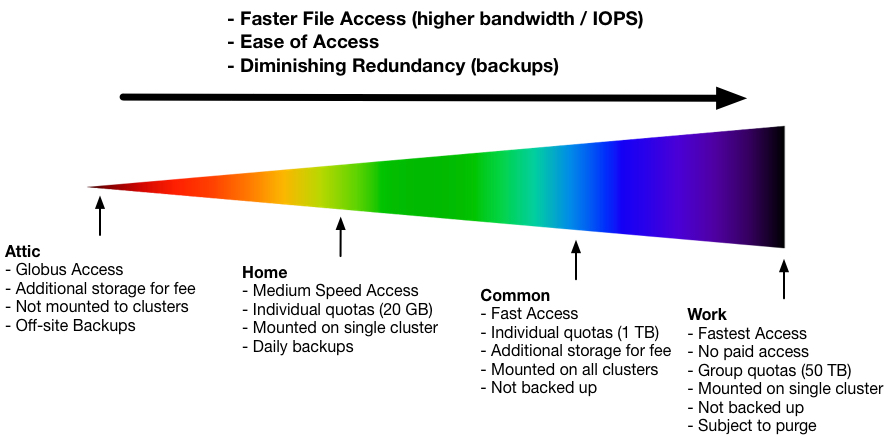
$COMMON Release:
Users are now able to access their new $COMMON directories. $COMMON provides 1 TB of file storage per user and is accessible by all of HCC's clusters including Crane, Tusker, and Sandhills. $COMMON is not backed up nor will it be subject to the 6 month purge policy.
For more information, please visit: https://hcc-docs.unl.edu/x/0YrQAQ
New JupyterHub Kernels:
Users can now create Jupyter Notebooks for SAS, Julia and MATLAB languages in addition to the already available Python and R kernels. These interactive notebooks allow for the interleaving of active code blocks and markdown text in addition to the back-end computing power of the Crane cluster.
To access HCC's JupyterHub's instance and begin your own Jupyter Notebook, visit: http://crane.unl.edu
Anvil Rebalancing:
HCC's OpenStack resource, Anvil, provides users with cloud based VMs. These VMs are useful for situations where a traditional command line environment is not ideal, such as software with graphical interfaces or which require an alternate OS such as Windows.
To prevent overloading the resource, users are HIGHLY encouraged to terminate instances that they are no longer using.
Please direct all questions to hcc-support@unl.edu